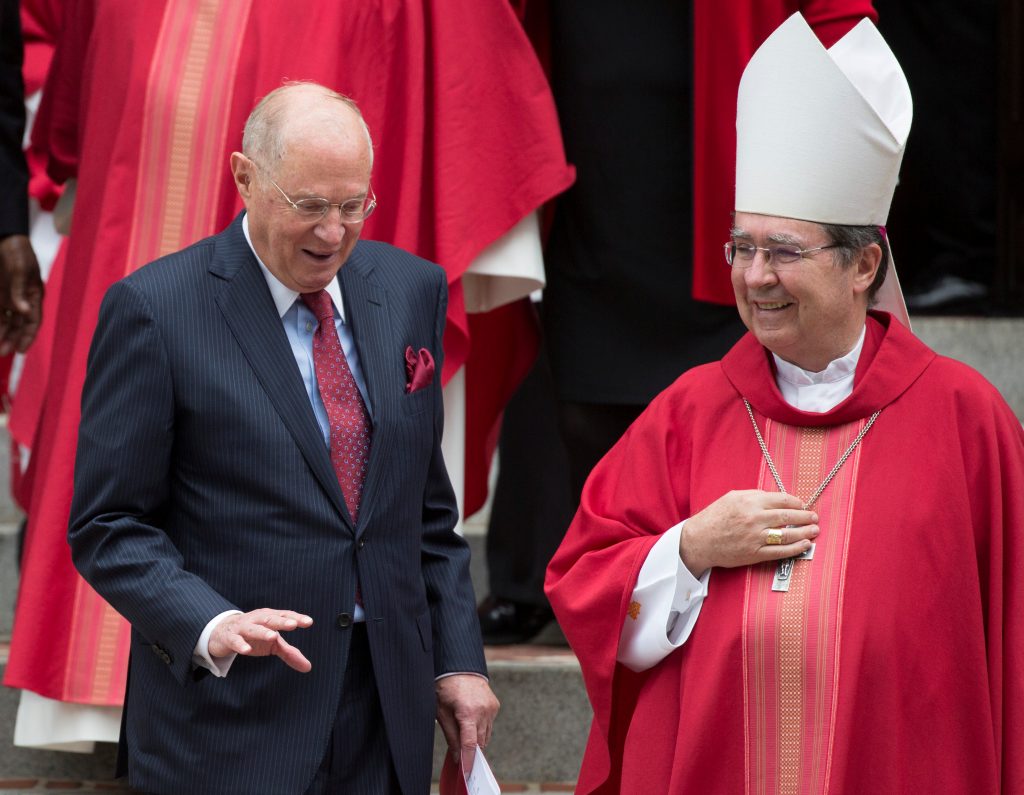Rumors have been flying around Washington that Justice Anthony Kennedy will announce his retirement from the Supreme Court shortly after the court’s current term ends late in June.
Whether he will or won’t remains to be seen. But it would be no great surprise if he does.
For one thing, Justice Kennedy will turn 82 in July, making him the second oldest member of the court after Justice Ruth Bader Ginsburg, who’s 85. Kennedy has served on the court since 1988, and in recent years has had the satisfaction of being its swing voter, exercising the power to determine the outcome in numerous closely divided cases.
If Kennedy does retire, there’s sure to be a protracted, unusually ugly struggle in the Senate over confirming a successor. President Trump is committed to naming a pro-life justice, as he did last year with Justice Neil Gorsuch. Then it will be up to Senate Majority Leader Mitch McConnell (KY) to do all he can to get the successor confirmed before the November elections — that is, while Senate Republicans are still sure of a slim Senate majority.
By the same token, it will be up to Minority Leader Charles Schumer (D-NY) and his Democrats to work to prevent a confirmation vote before the election. And then — who knows?
If the Democrats are in charge in the post-election Senate, it will be payback time for the Merrick Garland episode, which saw the confirmation of Barack Obama’s last Supreme Court pick blocked by McConnell and the Republicans by the simple device of refusing to consider it.
Getting back to Kennedy, he is commonly described in the media as a “conservative.” No doubt that is accurate enough on some matters, but where the social issues are concerned, Kennedy, a Catholic, has been anything but conservative, instead playing a key role in defending legalized abortion and conferring constitutional status on same-sex marriage.
In 1992, in a case called Planned Parenthood v. Casey, Justice Kennedy, joined by Justices Sandra Day O’Connor and David Souter, delivered a plurality opinion that settled the question in favor of abortion. It contains a passage in Kennedy’s easily recognized philosopher-king style situating “at the heart of liberty…the right to define one’s own concept of existence, of meaning, of the universe, and of the mystery of human life” — words which earned Kennedy’s text recognition in some quarters as the “Ah, Sweet Mystery of Life” opinion.
In 2015, with authorial juices flowing again, Kennedy wrote the majority opinion for a sharply divided court in Obergefell v. Hodges, the case which discovered a previously unknown constitutional right to same-sex marriage. Until then the fight over this issue had gone on largely in state legislatures. Kennedy and the court’s four liberals removed the question from the hands of elected representatives of the people and imposed their answer on the nation as a whole.
Writing in dissent, Justice Samuel Alito said Obergefell would foster the “marginalization” of people with traditional views on marriage. “Recalling the harsh treatment of gays and lesbians in the past,” Alito wrote, “some may think that turn-about is fair play. But if that sentiment prevails, the nation will experience bitter and lasting wounds.” Recent moves to penalize those who oppose same-sex marriage on conscience grounds illustrate the truth of that.
Anthony Kennedy’s opinions in Planned Parenthood and Obergefell were expressions of radical libertarianism grounded in an individualistic philosophy of life and law. Whether he steps down now or later, social conservatives will pray for a successor in a very different mold.

